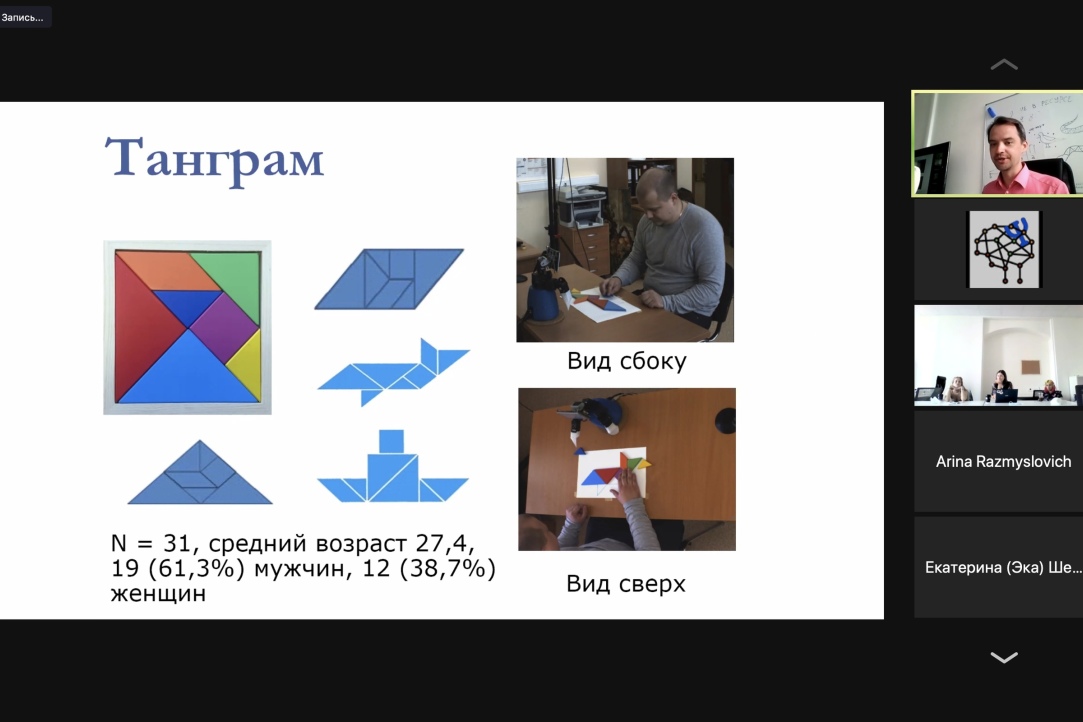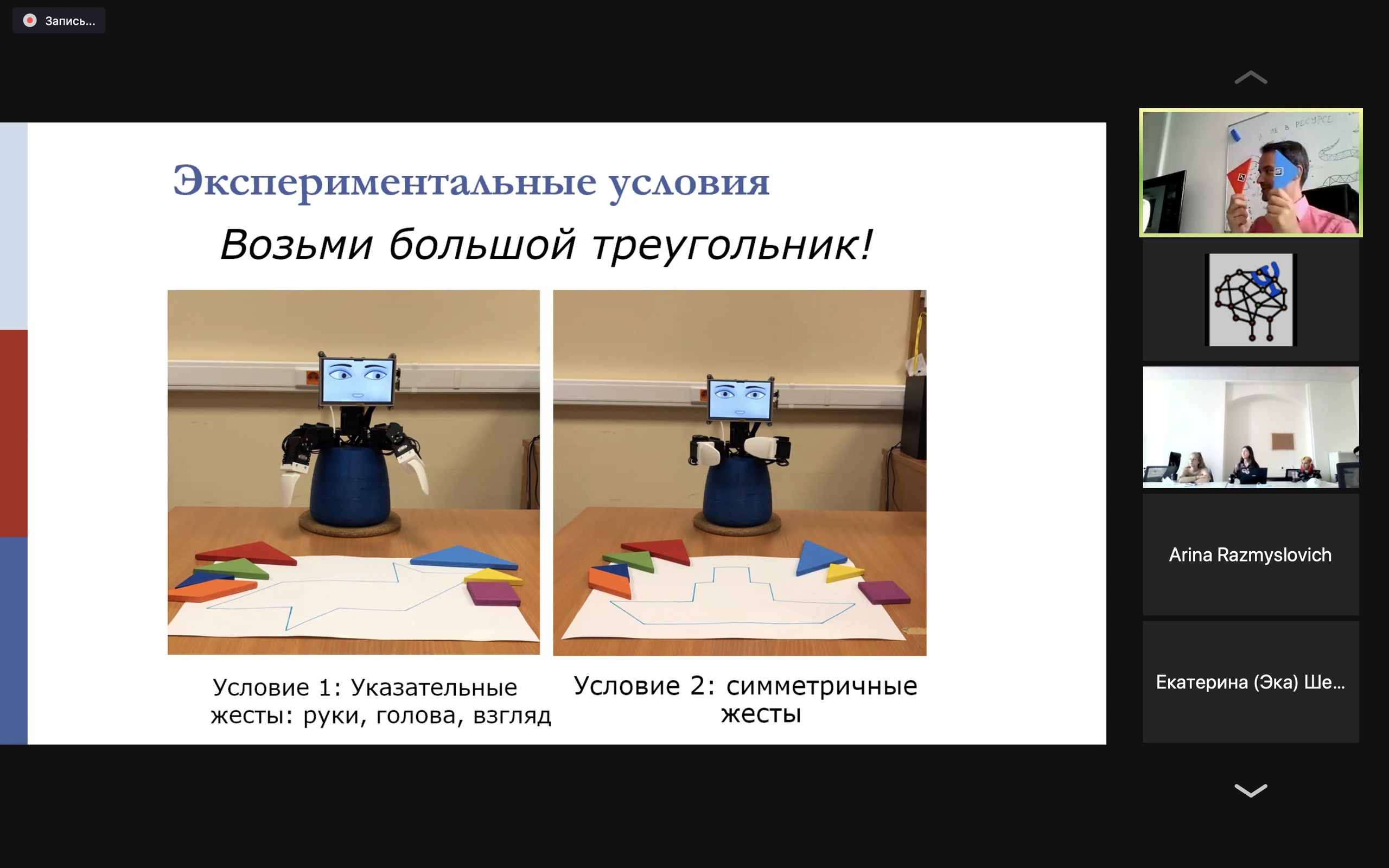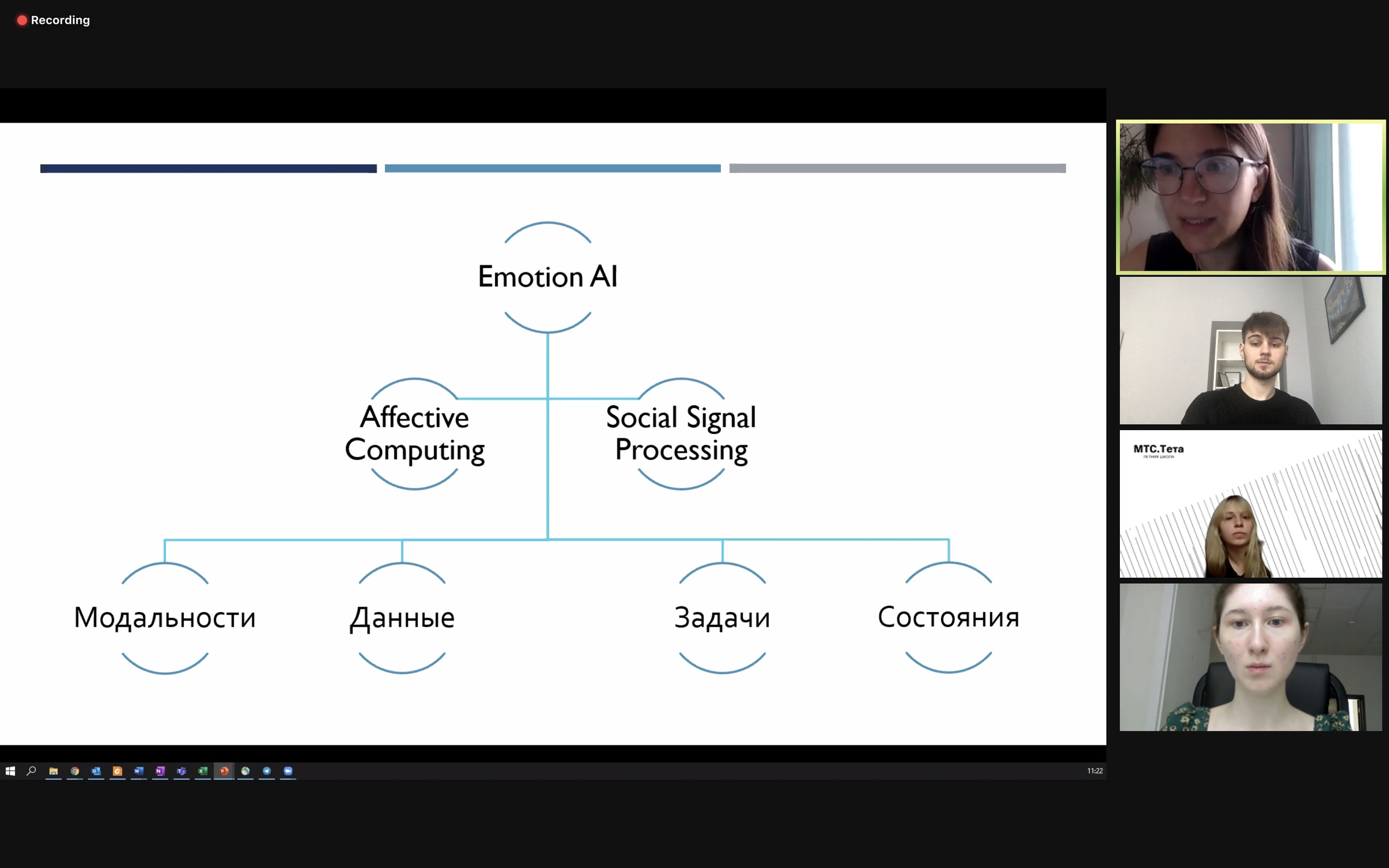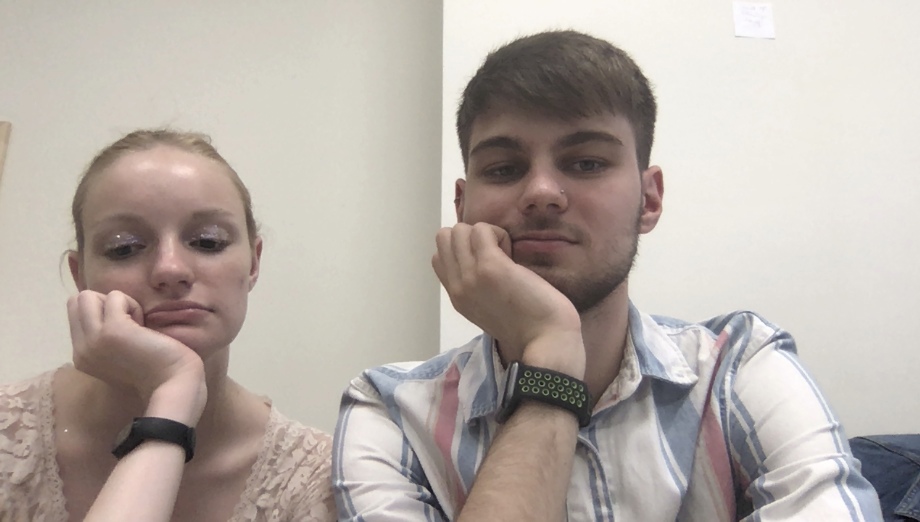“Applied Cognitive Science” Summer School. How was it?
This year the 3d “Applied Cognitive Science” Summer School was held by our Lab. Unfortunately, we were forced to meet via online because of pandemic situation. Nonetheless, these conditions did not affect on shool program: it was intense and engaging.

Where else you can gather the best Russian cognitive scientists? Our speakers included Maria Falikman, Head of HSE School of Psychology, Vladimir Spiridonov, Dean of PANEPA Faculty of Psychology, Dmitry Ushakov, Director of Institute of Psychology of the Russian Academy of Sciences and Vasily Klucharev, Director of HSE Institure for Cognitive Neuroscience. Also our collegues Igor Utochkin, Nikita Loginov, Sergey Vladimirov and Sergey Korovkin were invited. Almost all of them have Doctor of Science Degree. Discussions were moderated profeccionally by Head of HSE UX LAB Elena Gorbunova and Leager Research Fellow of HSE Coglab Dmitry Lyuisn. And the discussions were really heated: wether cognitive psychology is a psychology? Is it possible and how to conduct interdisciplinary research in cognitive science? It was not posiible to make an unambiguous solution: there were huge differences between insight and visual attention studies. Many speakers shared that it is difficult to conduct interdisciplinary project with other cognitive scientistsогнитивных наук. However, methodological barriers of our science should not frighten us, but in the contrary motivate for new research!
Nevertheless, our school was, first of all, about where and how knowledge from cognitive psychology can be applied in business, in industry, and in marketing. Colleagues from JetBrains, a company engaged in the development of digital products for programmers, Maria Antropova and Yanina Ledovaya, spoke about why IT companies need “humanities” and cognitive psychologists. Alexey Gorin told us about the fashionable direction of neuromarketing and its wide opportunities, and Anna Shestakova, Director of HSE Center for Cognition & Decision Making, shared her view on how you can educate consumers and influence their preferences using neuromarketing technologies.
Speaking of learning, modern pedagogy increasingly takes into account the achievements of the cognitive sciences. It is impossible to ignore the results of studies of memory and thinking in the development of educational policy. During her lecture, Elena Rybina discussed the cognitive load theory which is one of the most influential theories at the intersection of cognitive science and education. Is it possible to control some interface with the "power of thought" using imaginary movements? It turns out that yes! Alex Ossadtchi, Director of HSE Centre for Bioelectric Interfaces, spoke about ideomotor interfaces. Olga Shcherbakova gave a lecture about how people understand humor and why they joke, and Almara Kulieva told us and clearly demonstrated how not to draw graphs based on the data obtained, otherwise colleagues will not understand what you wanted to say this.

Our school traditionally had two tracks, from which each participant had to choose one to study. We expected to have experienced guys in the UX field, so “Advanced UX Techniques and Usability Research” was suggested as one of the tracks. As part of this track, leading Russian usability specialists such as Natalia Sprogis, Anna Islamova, Alyona Kulikova, Olga Altabaeva, Maria Bilkova, Pavel Manakhov and Vyacheslav Ivanov shared their experience on a variety of topics. “Emotions and Cognition” track was an alternative to UX. Emotion studies play an increasing role in applied research since product developers are guided by user emotions. Dmitry Lyusin gave an introductory lecture about the role of academic science in the research of emotions, Olga Perepelkina devoted her lesson to affective computing that is the latest AI technologies that recognize human emotions, and Artemy Kotov introduced us to the design of artificial agents, simply robots capable of responding to human emotions as well as have your own.

A striking conclusion of our school was a discussion between Vladimir Spiridonov and the famous popularizer of science in Russia Asya Kazantseva about how it is necessary (and is it necessary?) to popularize science in general and cognitive in particular. Both speakers agreed that this was necessary, although they gave different reasons. In the middle of the discussion, a heated debate arose, which was never resolved, and is unlikely to succeed in the next century, about who makes the decisions—the person himself or their brain? Asya defended the “reductionist” neurobiological position that it is the neurons of the brain that are responsible for all of our behavior, with which Vladimir strongly disagreed. The issues of the connection between consciousness and the brain, the problems of free will and choice are somewhat beyond the scope of applied cognitive research, but it would be wrong not to touch on them: it is too interesting and it is not clear what the truth is.
We wholeheartedly thank our wonderful teachers and, of course, the participants for whom we are making our school! We are planning to continue organize this event and we are waiting for everyone at our next summer schools. We really hope we will meet in offline format because the live communication of the best minds of Russia is worth a lot! We miss you very much, we haven't seen many of our friends for two years, but we tried to please you with an interesting program! We would like to believe that it worked out! Be well and take care of yourself.

Research Assistant
Elena S. Gorbunova
Laboratory Head
Aleksei Gorin
Junior Research Fellow
Dmitry Lyusin
Leading Research Fellow
Pavel Manakhov
Associate Professor
Alexey Ossadtchi
Director
Elena Rybina
Junior Research Fellow
Igor S. Utochkin
Laboratory Head
Anna Shestakova
Chief Research Fellow
